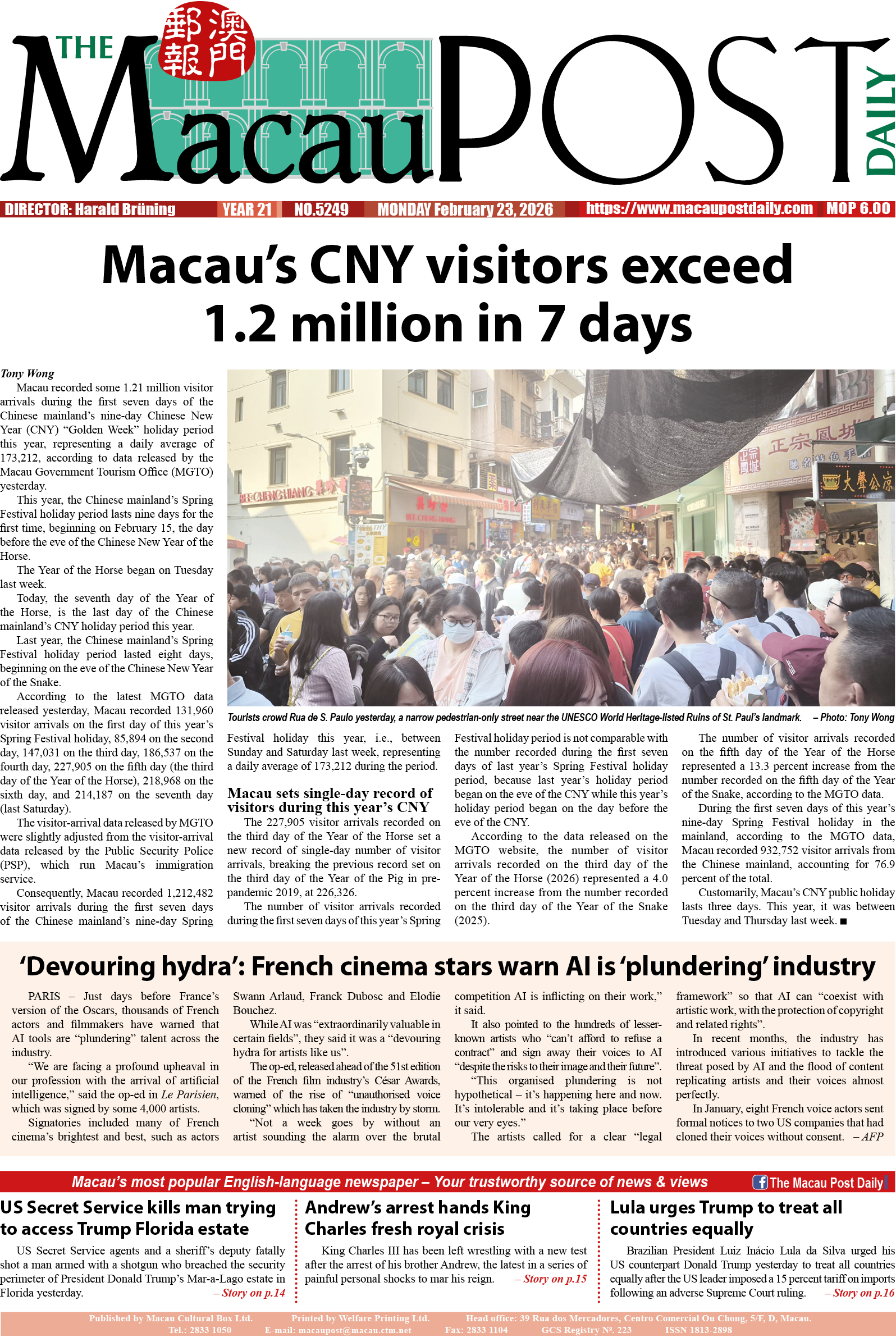What’s the difference between an internet café, a cinema, and a library? Each could be a place for phone use, gaming and movie viewing, but consider the phrase “just because you can doesn’t mean that you should” and think in the context of a library. Is it the place for a few online gaming sessions? Is a university library with a limited number of computers in study areas the right place to gather a few friends for a movie?
These are a few scenarios I observed at some libraries while I was a student, a part-time student librarian and even on my most recent visit, which was yesterday. Breaks in between working or reading are reasonable, but it is important to consider context and what is appropriate if the aforementioned situations are a main purpose of visiting one. There are rules posted in various libraries, with the Macau Library’s website even having regulations for multimedia rooms and internet use, yet some users overlook them while also finding ways to remain incognito.
The issue may not possibly be as widespread as an epidemic, but it is important to address them for several reasons. For instance, during most of my visits, I noticed that this behaviour, specifically gaming, is common among the youth, which the library does not condone. An article titled “Internet addiction among adolescents in Macau and mainland China: prevalence, demographics and quality of life” published in the online peer-reviewed open access journal Scientific Reports in 2020 found that internet addiction was more common among Chinese adolescents in Macau when compared to those in the mainland. The same article defined internet addiction as involving various behaviours like “online gaming, online shopping, online pornography, online gambling, and social media use”, all of which cause issues when done in excess.
Moreover, Macau’s Libraries also house a valuable set of resources openly available to users, ranging from books to newspapers and online resources, as well as seats and tables for purposes like studying or school work. The article “Regulating use of the internet in public libraries: a review”, released in the Journal of Documentation in 2014, also noted that a library can even allow internet access to those who do not have it at home or at work to use commercial and government services and information. With this in mind, some people in Macau may need these resources more than others. Would it then be right to take a seat from someone who might actually need it?
The library is also a place that promotes productivity and encourages reading, and seeing things outside of those can ruin the experience. Libraries offer a great reading environment while books provide a powerful escape for those who take the time to read them there. Neil Gaiman described it best when he said that “a book is a dream that you hold in your hands”. Instead of sitting in the reading areas fully engrossed in a movie or TV show, an online game and things that are best done elsewhere, it would be more appropriate and respectful, both to other patrons and the library, to use the library for what it was truly meant for.
The Macau Public Library’s website logged a total of 2,389,075 visits in 2021. Though the number of repeat visits is unspecified, it makes me wonder how many of those visitors did actually went to a public library for its original purpose*. The library is neither a cinema nor an internet café, but a place with a very own purpose. All it depends on is its user and consideration for the phrase “just because you can does not mean that you should”.
*The etymology of the English word “library” comes from the Latin word “librarium” which means “bookcase” or “chest for books”. In Romance languages such as Spanish, Portuguese and French, the word for book is “libro”, “livro” and “livre” respectively.
Photos: Rui Pastorin






